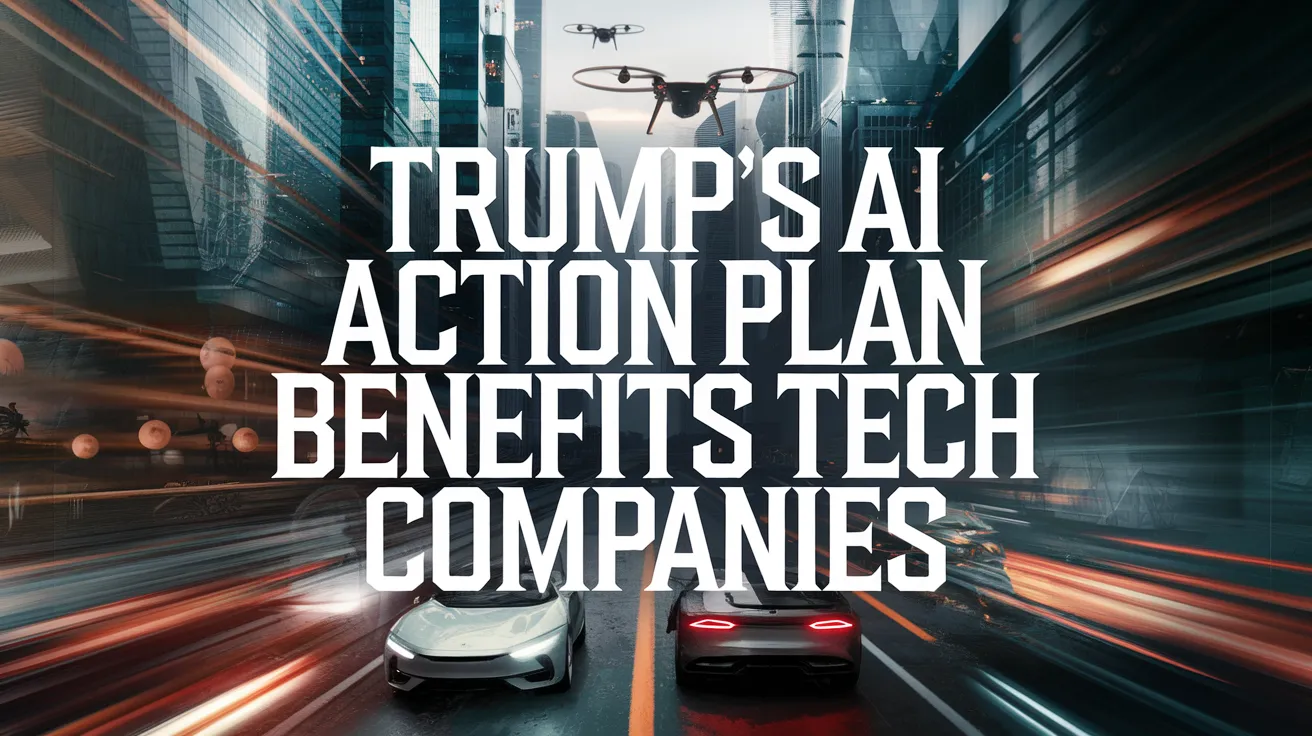Trump’s AI Action Plan Benefits Tech Companies

Donald Trump’s AI summit in Washington this week was a fanfare-filled event tailored to the tech elite. The president took the stage on Wednesday evening, with the sound of “God Bless the USA” playing in the background, and declared: “America must once again be a country where innovators are rewarded with a green light, not strangled with red tape, so they can’t move, so they can’t breathe.”
This statement underscored his message that the regulatory environment—once a focal point for federal lawmakers—was shifting dramatically.
During his address, Trump noted, “I’ve been watching for many years. I’ve watched regulation. I’ve been a victim of regulation.” With an audience composed of tech leaders, venture capitalists, and billionaires, including Nvidia’s CEO Jensen Huang and Palantir’s CTO Shyam Sankar, the gathering marked a notable alignment between large tech firms and the government.
The event, dubbed “Winning the AI Race,” was an opportunity for the president to unveil what he termed the “AI action plan,” aimed at easing restrictions on the development and deployment of AI technologies.
Central to this plan are three executive orders aimed at promoting the export of “American AI” and rolling back regulations instituted by the Biden administration which included safeguards for the responsible development of AI.
One of the executive orders specifically targets what the White House identifies as “woke” AI, mandating that companies receiving federal funding must maintain AI models free from “ideological dogmas such as DEI (Diversity, Equity, and Inclusion).”
The tech industry has been increasingly seeking deregulation, and this announcement indicates its success in influencing governmental approaches. Microsoft’s head of emerging technology policy noted that the new guidelines represent a significant departure from what they perceived as a more hostile regulatory environment seen earlier.
However, the changes bring about a host of concerns regarding the accountability and ethics of AI deployment. Critics have cited apprehensions that such deregulation could jeopardize foundational rights and safety measures. Various labor, environmental, civil rights, and academic groups have collectively signed a “People’s AI action plan,” voicing opposition to the increasing influence of big tech over regulatory processes.
As these developments continue, ongoing dialogue between governmental agencies and tech companies will shape the landscape of AI regulations, propelling both innovation and necessary safeguards for society.